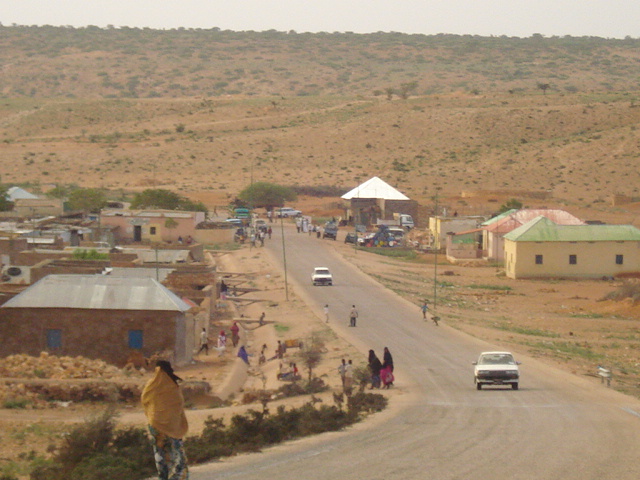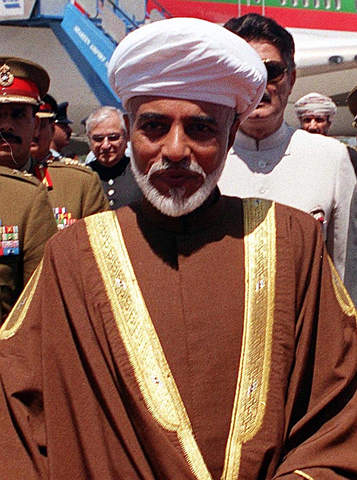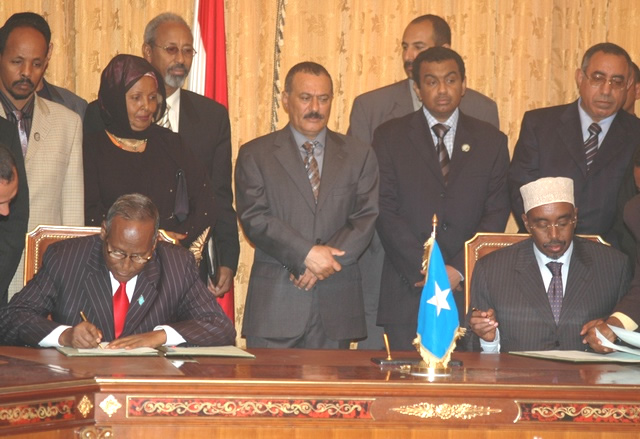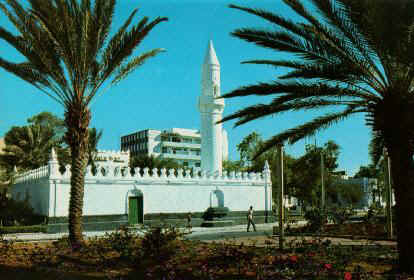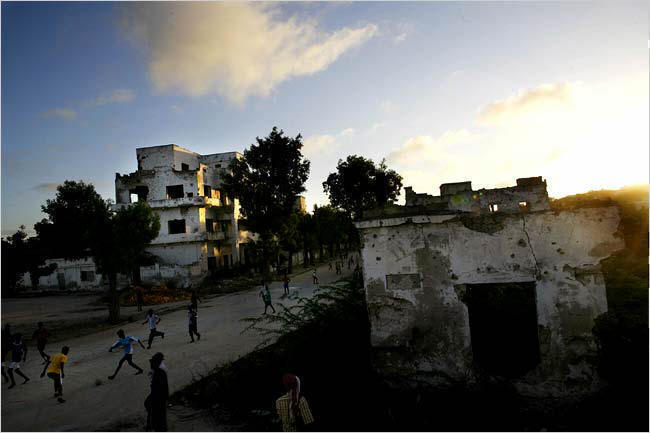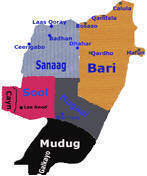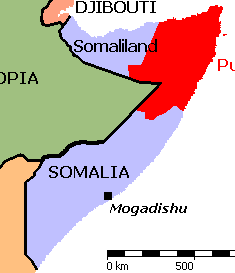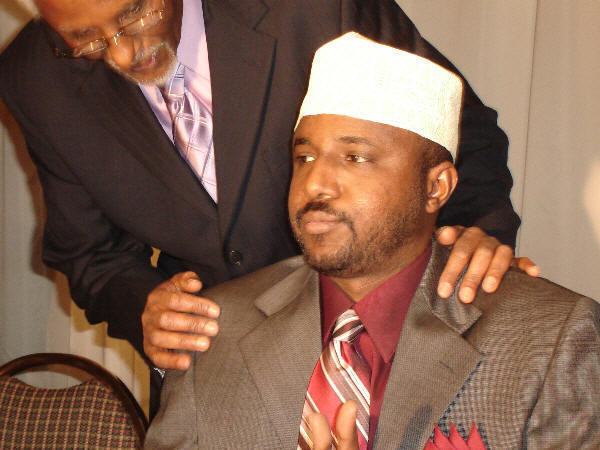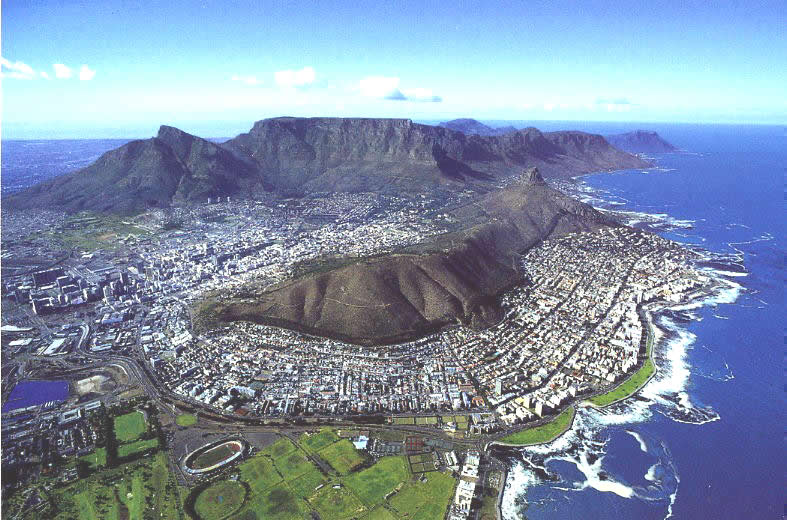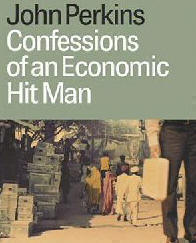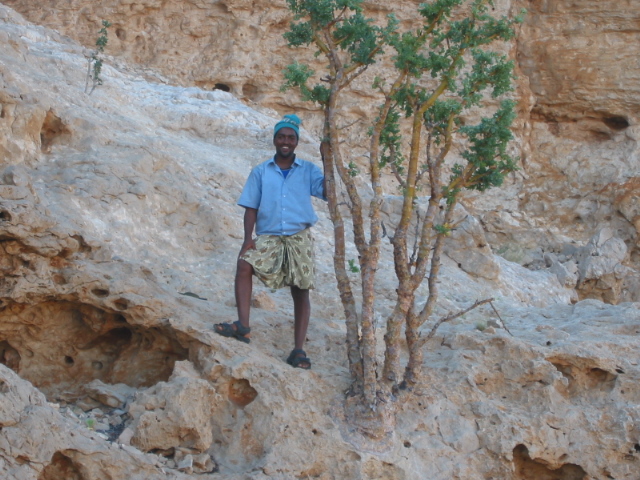
How to Start Your Own Xubin and Waax Country
Biyokulule Online
Wednesday, March 16, 2011
The discontent created by artificial borders was being blamed for the Horn of Africa`s instability. These artificial borders separating people, causing neighborly disputes and wars, should really be considered the root of all evils in
In addition, the current Western-backed Transitional Federal Government in
For now, Do-It-Yourself democracies is the most natural state for Somalis; that is, the abolition of artificial borders, which when Europeans created do not lead to anything good. Do-It-Yourself democracies (DIY democracies) are also the opportunity for the Somalis to see, condemn and even intervene against dictatorships, pirates, Sheikh-warlords, and dreaming cabdrivers which hide behind the tall walls of �the securing and guarding the colonial borders�.
The only answer to colonial irrationalities that divided Somalis with artificial borders is to create truly independent micro-Somalias.
Creating Your Xubin and Waax Country
In this new millennium, while the West is seeking to overcome the problems of the nation-state through projects of regional integration,
The wounds inflicted on
Micronations sprung up throughout what was then �
Roobdoon Forum veils its central argument with a famous old proverb that says: �You can`t make an elephant even from 1,000 mice.� For decades, the 1,000 Somali sub-clans humiliated the prospects of Somaliweyn (Maandeeq). Thus, while the dream of the one nation-state called �Somaliweyn� is coming to its end, there must be an effort to try an alternative political unit made up of many micro-Somalias.
Micro-Somalias
Although many scholars argue that democracy is the best method of governance, despite its pitfalls and imperfections, yet any model of governance is in perfectible state and its viability depends upon a variety of factors. For instance, there are various models of democracy in the West, and all of them have one thing in common: the will of the people is respected.
Since there is no one unique model of democracy that can be applied in all situations and for all times, to impose upon a particular model of democracy on Somalis without regards to its local peculiarities is in itself undemocratic.
Somali clans from different regions of what was �Somalia Proper� are now pursuing a mode of government that reflects the diversity and clan particularities of their regions, and also taking into account the internationally recognized principles, norms and standards.
Naturally, anyone can criticize the clan principle of Somali culture. Historically, however, it occupies its own place in Somali nationhood along with the territorial principle; and the idea of �each clan must have its own country� is not new. The current mood of many Somalis simply demonstrates a fairly widespread and to a certain degree primitive understanding of the role and place of the clan principle in Somali state building. It makes more sense to hold a discussion on the right of every clan to the unique development formed by historically fairly clan-territorial communities.
Fed Up with Your Country?
The voices coming from Hargeysa, �we should rule what was former British Somaliland� and Garowe`s �Puntland has no plans to secede from the rest of Somalia but only cut ties with the TFG� are cut from the same cloth. These voices cannot be discounted, because it is based on the feeling of superiority of certain clans over the others, in which it has already triggered clan conflicts in both
Roobdoon Forum is soberly aware that discrimination and intolerance based on clanism and sub-clanism exist in �
The proponents of �
This is how the domino effect would be felt in all of
Awdaland, SSC land, Maakhir, Dashland, and Casayrland etc would raise their flags, and all of a sudden, all of
Finally, don`t laugh at Somalia`s misfortune; because this is serious. You know that in post-Cold war era,
Roobdoon Forum
Wednesday, March 16, 2011
How to Start Your Own Country: A Primer
Mother Jones
Monday, March 07, 2011
Is Sealand better than
Last month,
While places like Kurdistan and Somaliland might occupy more of the government`s time, the ranks of aspiring nations are filled with Do-it-Yourself (DIY) democracies�places like North Dumpling Island in Long Island Sound, and Molossia in (or surrounded by) northern Nevada�that are often equipped with little more than a flag, an anthem, and a back porch. It`s these communities, known as micronations, that Canadian filmmaker Jody Shapiro set out to profile in his latest documentary, How to Start Your Own Country. Mother Jones spoke with Shapiro recently about micro-national alliances, the future of the nation-state, and what happens when the mother country doesn`t get the joke.
Mother Jones: Your last project was about the sex lives of insects that live in your garden�how do you go from that to micronations?
Jody Shapiro: Well I had no idea about this phenomenon, really. I found this book that was written by Erwin Strauss called How to Start Your Own Country. I just thought it was this incredible idea�I had no idea that people around the world were actually doing this.
MJ: I don`t mean to put you on the spot, but I`ll do it anyway: How many countries are there in the world?
JS: We actually set up a meeting [at the UN] with a spokesperson in the secretary general`s office, and one of the very first questions we asked was what you just asked me. And their official answer was, �We are not an authority on the topic. Please consult your local library or world almanac.� They actually refused to answer that question! I think the United League of Micronations claims that there`s something like 567 countries or something like that in the world.
MJ: The United League of Micronations�is that a real thing?
JS: We tried to contact the folks, and we never got a response from anybody. So who knows!
MJ: After doing the research for the film, how many nations do you recognize?
JS: It`s hard to say. Some places�like Sealand and Hutt River Principality�I had a hard time finding somebody to give me a convincing argument why these places could not be considered countries. You go there, you get your passport stamped, you get a visa, you use their currency, you hear their anthem, you see their flag, you read their constitutions. When I left there, I felt like I was actually leaving somebody`s sovereign territory.
MJ: In the film you say there are hundreds of micronations being formed, every year�what`s the average lifespan for these things?
JS: It`s a loose term right now. It fits from anywhere from a kid in a parent`s basement, declaring his own virtual community, to places like Hutt River�that`s been around for 40 years now. I think some places will last for years; others will fold down the minute their parents kick them out of their house or something like that.
MJ: With the rest of the world stacked against them, it would seem that there`s an incentive for micronations to form alliances with each other. Does that happen at all?
JS: There was a connection between
MJ: What happens when micronations fight?
JS: I think it probably resembles a game of Battleship or something like that [laughing]. But then there`s the story of Sealand. Somebody really tried to take it over, and they had to literally fight their way back on and deal with these criminals (as they called them), without the interference of the
MJ: What`s the difference between a micronation and your traditional aspiring nation or breakaway republic? Is
JS: It`s really hard to tell. And that was sort of the idea of the film; one reason that we didn`t go into some of the real-world scenarios�you know, you could talk about Palestine, or Somaliland, or Western Sahara�is we wanted to represent the idea that a country could be more than politics and policies and lines drawn in the sand, that maybe these things didn`t matter so much on the surface.
MJ: What`s the appeal? Is this mainly just a group of people who got way too into Risk?
JS: Well, you know, I take Prince Leonard [of Hutt River Principality] very seriously when he said he did it for survival. He formed a self-preservation government, which he claims was his right to do under the constitution, because his livelihood was threatened, and he felt that the only way to survive was to secede. Everybody`s sort of got their reasons for doing it, I feel.
MJ: So there`s not one unifying idea.
JS: The one thing I would say that unifies them is the nature of what makes a country a country. I originally thought it was a political question but I sort of realized through making this film that it is sort of a philosophical question. I think there is a lot of individual expression and a lot of defining who they are and this is sort of how they do it.
MJ: There are some pretty obvious steps to start your own country that everyone seems to know�a flag and a founding document, for instance. What do people tend to overlook?
JS: The responsibility of having a country. People have asked me after the film if I wanted to start my own country, and I`m very happy being a Canadian and have no desire. But there`s a responsibility that comes with [starting your own country] that I don`t think some people realize. Sealand gets requests from people looking for refugee status, leaving wartorn countries and hoping to get a passport because they see this as a country. If you take yourself seriously, there are other people in the world who are going to take you very seriously.
MJ: Starting your own country seems pretty straightforward in, say,
JS: It`s definitely happened in the past. Like in Sealand, the
MJ: The nation-state itself is a relatively recent development, within the last few hundred years�do you think micronations are the future?
JS: It`s constantly evolving. I like the point that Gregory Green brings up in the film, which is that today, the way the world is so connected, online groups through the Internet are forming these communities that tend to be stronger than any community that certain countries can put together. Who knows what it means? One of the things that we didn`t explore in this film that may be worthwhile exploring in another film is: What is the role of the UN or other supernational bodies in the future, with the way things are still evolving? Is it still relevant?
MJ: Should they be the future?
JS: I just don`t think that there`s any stopping it. Like you said, it`s a relatively recent concept. It`s something that I think more and more people feel they have a right to define�who they are and what they are�and fix rights and wrongs and stuff, and I think it`s something that the masses are just gonna sort of move towards.
MJ: You travel to a bunch of places that our readers probably couldn`t place on a map, plus the Free State of Caroline, which isn`t even on a map. How did you make travel arrangements?
JS: Some of these places are hard to find. I say this with total seriousness: It took me three years to actually get Sealand`s Prince Michael to do an interview. I had to apply for a visa, which got denied three times, to go visit him. We eventually got permission to enter the territorial waters of Sealand. They say if you don`t have permission, be prepared to be questioned by the Sealand authorities. And if they feel like we`re trespassing, they have their measures of dealing with it.
MJ: It`s like certain parts of Idaho.
JS: Yeah, something like that [laughs]. But fortunately most of them are located near airports.
MJ: But what about going through airport security with these places on your passport?
JS: I`ll be very honest about that one. I travel too much. And I travel to the
MJ: If
JS: I`m already a citizen of the New Free State of Caroline. We had the world premier at the Toronto International Film festival, and [the president] said after the first couple of screenings, he had already received emails from 20 people who were in the audience, asking for citizenship. I was quite impressed by that. I`m not ready to move into President Baugh`s backyard in Molossia.
MJ: Yeah, that sounds invasive. So along those lines, do family members and friends just go along with it?
JS: For the most part. The Seborga folks are all very serious. Even when we got there to film, there was discussion, they were a little nervous about us at first, even though we tried to arrange it beforehand. They actually put it to a vote to see if they would allow us to film once we got there.
A lot of these places are very concerned that they`re not going to be taken seriously. My biggest thing with the film was I set off to make it by saying that I was going to treat each micronational leader with the respect that they felt they deserved as the head of state. I felt they had an interesting story, and an interesting history, and I thought [Seborga] was a nice example of a town that literally the entire population believed in this idea of them being an independent principality, of not recognizing
Tim Murphy is an editorial fellow at Mother Jones.
Fed up with your country? Create your own
By ASSOCIATED PRESS
May 03, 2010
REIDS FLAT, Australia: The Empire of Atlantium`s imperial botanical gardens consist of one bush. Capital Hill is, quite simply, a hill. Government House is a 320-square-foot (30-square-meter) steel-sided affair, boasting bunk beds and an art deco radio. (�Modest,� His Imperial Majesty George II says, �in keeping with the emperor.�)
His Majesty raises the flag of Atlantium, its orange, blue and yellow meant to represent the dawn sky. �Behold the future!� he bellows, gesturing to the surrounding valley that makes up his 188-acre empire, where just over the hill with the dead tree you will find the Australian border.
He is grinning, but he is serious. Just like most of the other few-hundred-or-so citizens of the world who have founded their own micronations - quirky self-declared countries that claim independence, even if no international body recognizes them.
Some boast their own currencies, constitutions, stamps and visas. Many exist solely in the minds of their makers; others range from a
Technology has brought them out of isolation, with the Internet transforming some nations of one into global communities of thousands. Last month, a
These self-appointed rulers fit no universal definition, and really, that`s the point. In a world where people often are defined by their countries, these are countries defined by their people.
For some micronationalists, it is about taking their identities back from the state; for others it`s about righting a perceived wrong. At the heart of the movement, though, is modern individualism, says sociologist Judy Lattas.
�It`s always possible to do things differently and to do it yourself, and that`s what I think is the pleasure of it and the wonder of it,� Lattas says. �There`s pleasure in the daring of doing it yourself.�
�Is my crown straight?�
Princess Susan of the Principality of Wy reaches out to adjust the bejeweled golden crown resting on the head of her husband, Prince Paul. In her other hand, she clutches the staff of Wy - a green rubber snake wrapped around a bamboo pole, topped with a stuffed eagle.
The princess` lips are quivering with a barely-contained smile. The community hall, full of micronationalists who have convened for a conference on tiny
Swathed in a royal robe, Prince Paul (aka Paul Delprat, a 68-year-old art school principal) is delivering a history of Wy that is pure theater: a little Monty Python, a lot funny. (Do you pay rates to the local council? he is asked. �We give a `gift` every year,� he responds.) Humor has been his weapon in a 17-year battle for council approval to build a driveway to his home.
In 2004, after years of bureaucratic bickering, Delprat informed Sydney`s Mosman council he was seceding, formed the Principality of Wy and declared himself ruler. His wife, children and two rabbits comprise the rest of Wy`s population.
He still is waiting for that driveway, but Wy has proved cathartic, he says. It is a way to express himself and ease the pain while having fun.
�With equal measures of courage and humor, the citizen of the world is armed against adversity,� he says. �You can`t fight humor.�
Like most government officials viewing micronations from the outside, Mosman`s mayor is dismissive. �I look at it with a degree of wry amusement,� Anne Connon says. �But it`s not of any great importance.�
Delprat`s case is typical of many micronations. Often, it starts with a feeling that one has been wronged, says Macquarie University`s Lattas, who helped organize the conference.
�And then,� she says, �it morphs into a political movement.�
Case in point: Prince Leonard (formerly known as Leonard Casley) of the Principality of Hutt River, Australia`s first micronation, which celebrated its 40th anniversary on April 21.
In the 1960s, the farmer became embroiled in a dispute with the state government over restrictions on his wheat quota. When his arguments went unheeded, he decided to secede and create a country with a government that would listen. He would govern it himself.
His 29-square mile (75-square kilometer) plot of farmland in
It all is done with a wink, acknowledges William Pitt, author of a book on
�Politics is theater anyway,� Pitt says. �Not just with micronations.�
The popularity of
The
And then there is Kevin Baugh, president of the Republic of Molossia, which comprises Baugh`s 6.3 acre property southeast of Reno, Nevada. The republic bans smoking, catfish and anything from
Still, the 47-year-old human resources recruiter says that amidst all the wackiness, there lies a lesson: If the world you live in is not representing you the way it should, represent yourself.
�Examine your world around you - your government, your country, your fellow citizens,� he says. �Step outside of it a little bit and think, `What am I doing? Could it be done better?`�
Outside the two-story, 134-year-old hotel in a town called Mittagong about 80 miles south of
At the door stands a smiling Prince Vasudeo �Vas� Khandekar. The 76-year-old, Indian-born veterinarian welcomes his guests inside, where he issues freshly-stamped visas. Light pours in through stained glass windows, illuminating hundreds of dolls that blanket the room. Out back, pigeons are cooing in their coop.
�Do you want me to put the tiara on?� the princess asks her husband, who has just taken a break from playing an antique foot-operated pianola to settle into his marble and rosewood throne. The Chinese symbols on it, he explains, mean happiness and good luck.
The Khandekars did not have a whole lot of either before they embarked on the road to royalty. In 2000, they learned the local council wanted to lay a sewer pipe through their property, which the couple says would have destroyed the fragile hotel they wanted to restore.
They pleaded with officials, wrote letters, made endless calls. Vas` health began to suffer. When the bulldozers came, Doreen sat in front of them to block their path.
She had always been a little different. So, too, was her solution - secede like that
The council eventually agreed to place one pipe on the outskirts of their property. It was not the fairy tale ending they had wanted, but it was better than running the lines closer to the hotel.
�People are apathetic, and they shouldn`t be,� the princess says. �People can stop things that aren`t right.�
Still, their new lifestyle was met with puzzlement and contempt from some, Prince Vas says. Many thought they were crazy.
Are they?
�Eccentricity is something which is present in everyone,� the prince says. �We are all mad to some extent. But we live in a sane world. We hope.�
He grins.
There`s a popular belief that most micronations are started by 15-year-old boys. In the case of George Cruickshank, that was true; the difference being that his empire outlived his adolescence and is still running, 29 years later.
The Empire of Atlantium began in 1981 as an idea between friends on how to make a positive impact. Today, it is an umbrella organization for globally-focused free-thinkers, a progressive lobbying group, Cruickshank says. But he insists he is not a politician.
�I`m a salesman,� he says, standing atop Atlantium`s Capital Hill, 220 miles west of Sydney. �I`m selling ideas.�
He sells information technology, too, in his day job as a 43-year-old upstanding Australian citizen. (Like all Atlantians, he has dual citizenship.) Someday, he hopes to turn Atlantium into an ecotourism destination, with cabins, a house of contemplation and a monument. But he is not looking to be a hermit and never has tried to secede.
He wants to be part of society, and to grab its attention for his ideas. Among them, that nations defined by geography or ethnicity will become obsolete. Atlantium, he says, is another option for people who don`t fit the culture into which they were born.
The empire now boasts 1,300 citizens in 100 countries, Cruickshank says. Most are liberal, intelligent people who share Atlantium`s beliefs and goals, such as the right to an abortion and the right to die. He encourages his citizens to liaise with their countries` governments, and he often sends position papers to world leaders.
He could just form an activist group, he says, but then he`d be one of 10,000.
More simply: George Cruickshank may not command much attention. But His Imperial Majesty George II does.
�I guess what micronations teach us,� he says, �is you can have an impact outside society`s norms.�
He is being serious. Mostly.
A minute later, he`s laughing again.
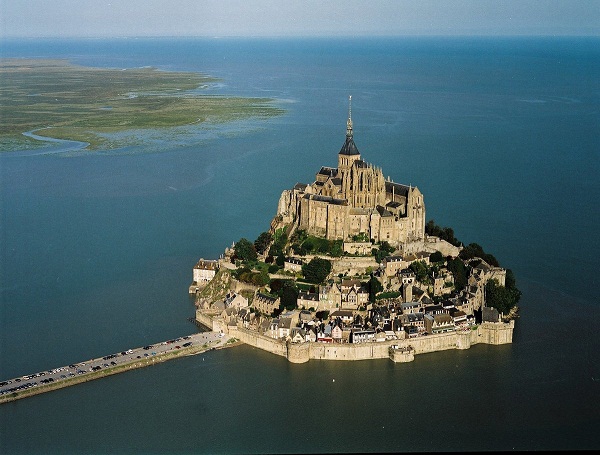
|
|
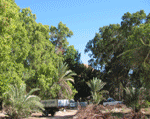 Sawirro Somaliya 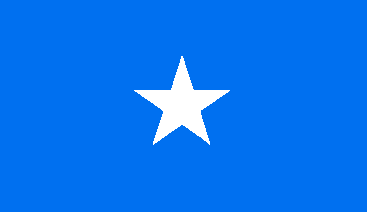 |
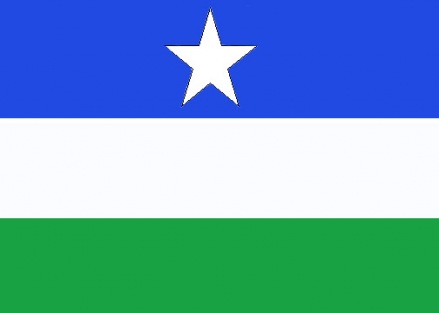
|
GOVERNANCE
The Scourge and Hope of Somalia A New Book By Ismail Ali Ismail 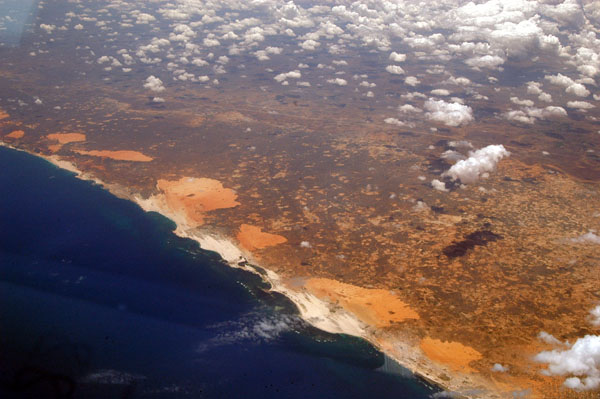 Which Way to the Sea, Please? By Nuraddin Farah Dhulkii Burcad-Badeedda .jpg) Budhcad Badeed Weli Qiil ma Leeyahay? 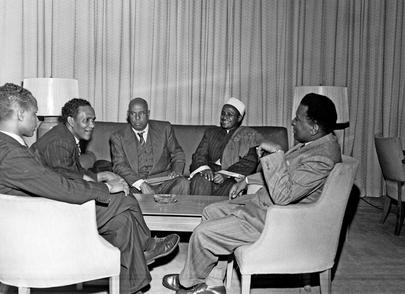 SYL LETTERS By A S Faamo |
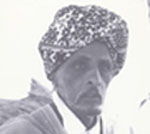 |
 |
© Copyright BiyoKulule Online All rights reserved�
Contact us [email protected] or [email protected] |

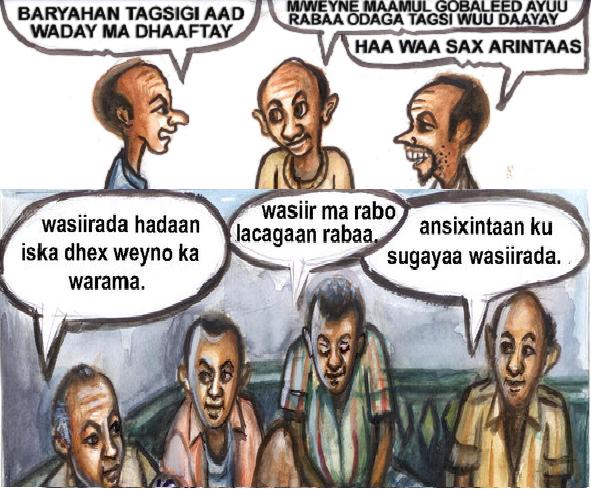
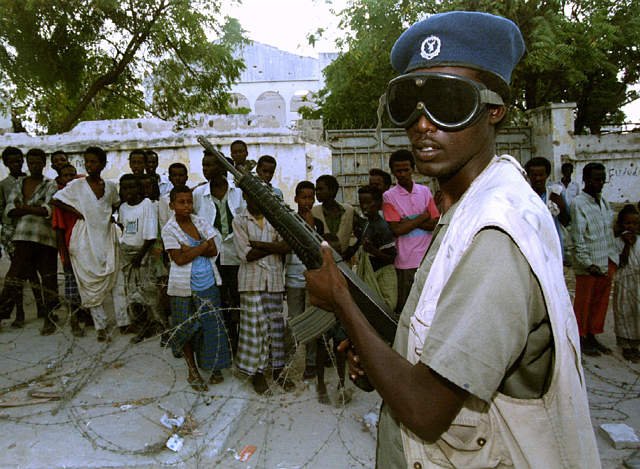


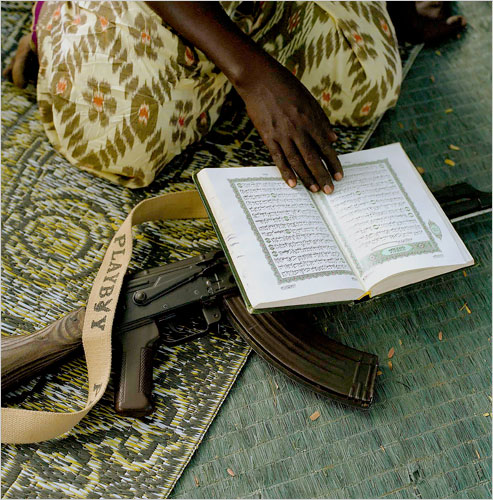

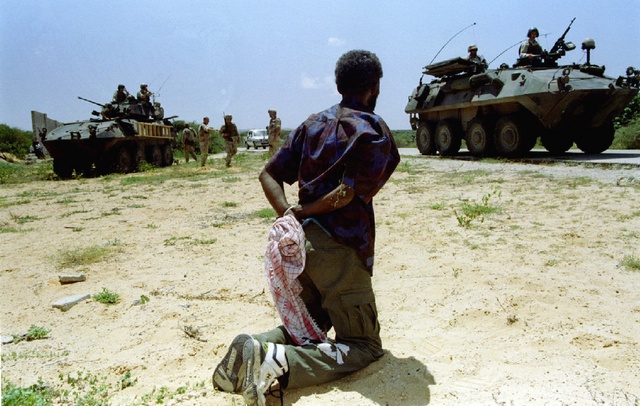
.jpg)




